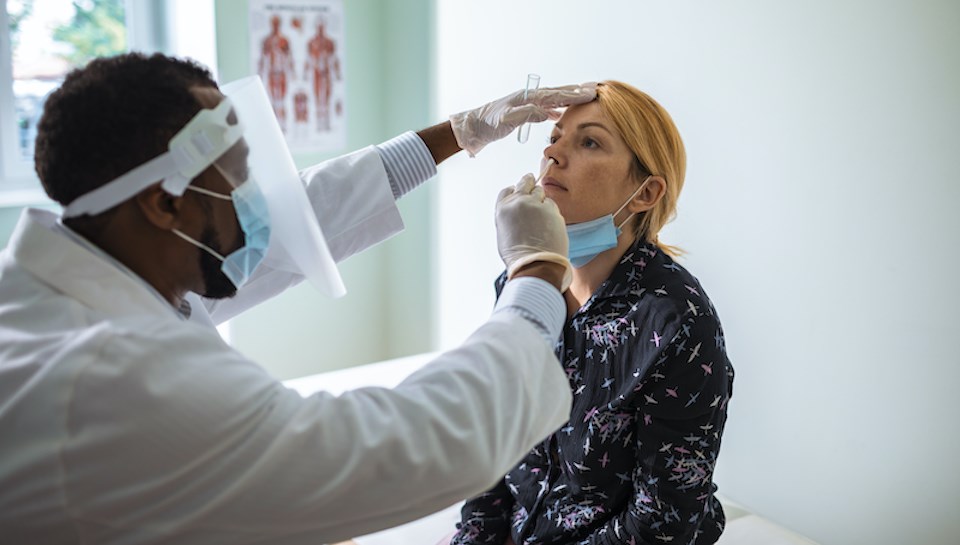Despite rising cases of the Omicron variant in the province, sa国际传媒's top doctor says people should not get tested if they don't have symptoms.
While the province has seen a significant rise in the number of fully vaccinated individuals contracting COVID-19, health officials don't recommend everyone gets tested for the virus — even if they have mild symptoms.
But that doesn't mean that they should continue their regular activities.
Provincial health officer Dr. Bonnie Henry told reporters in a on Tuesday (Dec. 21) that the recently identified strain poses a threat to public safety.
"Right now, there are a number of respiratory viruses circulating. And COVID is one of them," she said. "If you're vaccinated [and] you have mild symptoms, self-isolation and self-monitoring and caring for yourself... are important things that you can do.
"You don't necessarily need to get a test."
In particular, asymptomatic individuals should not be going for testing, emphasized Henry.
"We need to make sure that we're testing those people where this makes a difference in the care that they get. Whether they need to be monitored more carefully [and] whether they need more support."
sa国际传媒 ramping up testing in wake of soaring cases of COVID-19
The province is also gearing up to dramatically expand the use of while supplies of tests grow.
In addition, the province is already expecting 200,000 Panbio Rapid POC antigen tests from Ottawa by Dec. 31. Also, sa国际传媒 has itself purchased 500,000 BTNX nasal-swab tests with an “expected delivery of late December.”
As case counts continue to climb, Henry noted that the public health's ability to do "one-on-one testing and follow-up on a daily basis" goes down. As a result, the province is developing support to manage the increased caseload, which will involve redeploying people to support testing.
sa国际传媒 will also be coming out with additional information for people on self-care and regarding when to go for testing and seek medical attention.
Find out more information about if you should get tested for COVID-19 with the BC Centre for Disease Control .
With files from Chuck Chiang


